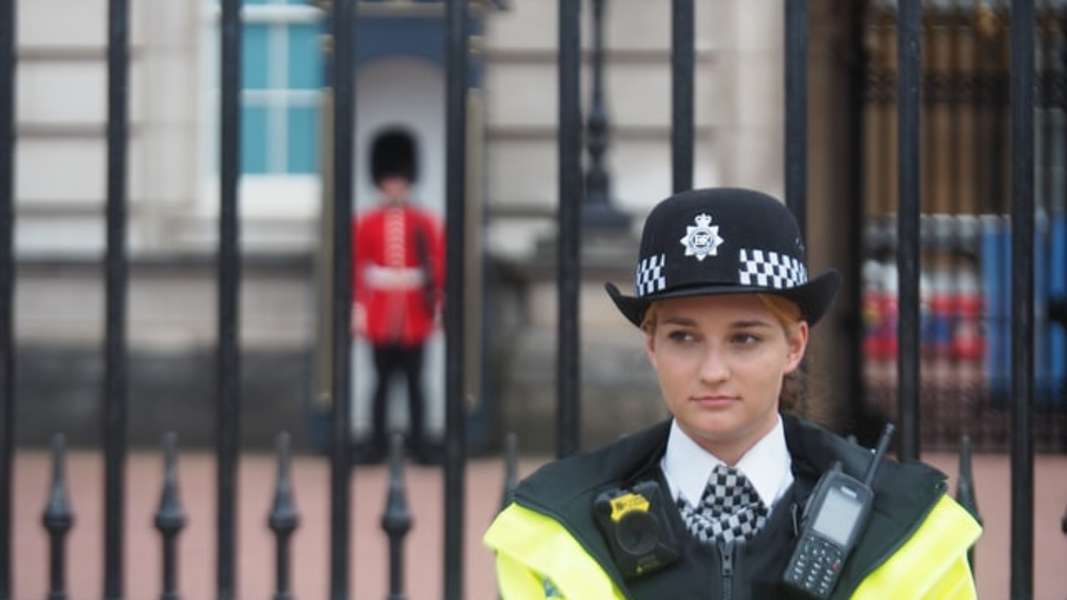There are a few standard questions that interviewees are likely to be asked by the Met Police when applying for a job.
We've compiled a list of the ten most common Met Police interview questions, along with sample answers you can practice and tailor your response with. Don't forget to also look at our guide to Met Police recruitment tests.
1. How would you describe yourself?
The question 'How would you describe yourself?' is often one of the first questions asked in a Met Police interview. It can be difficult to know how to answer this question. You want to give the interviewer a good sense of who you are, but you also want to keep it brief.
One approach is to focus on your strengths. Think about the qualities that make you unique and what you bring to the table. Maybe you are a hard worker or a team player. Perhaps you are creative or have a lot of experience in your field.
Whatever your strengths may be, focus on highlighting them.
Another approach is to give the interviewer a snapshot of your life story. Talk about where you grew up, what your family is like, and what led you to pursue a career in the police force.
Sample answer:
I thrive on challenges and often seek new experiences that take me outside of my comfort zone, so I have something to learn and improve. In my previous role, I was promoted three times in less than two years.
2. Why do you want to join the police force; what could you offer?
This question focuses on your passion and commitment for wanting to join the police force. Are you motivated for the right reasons? Working as a police officer has many challenges, so showing your keenness and enthusiasm is critical.
Identifying what value you can offer is also beneficial. What will you bring to the Force that will make you an exemplary officer? The interviewer is looking for you to show you've actually given it some thought.
Sample answer:
I want to help create a safer environment within the community. I thrive on helping others and enjoy working as part of a team. I am a really good listener and communicator, which are two important skills I could bring to the people I work with and support.
3. What qualities make a good Met Police officer?
The Met Police look for the following values:
- Professionalism
- Integrity
- Courage
- Compassion
They believe these qualities make a good police officer.It's important to know these qualities and be able to articulate examples of when you might have demonstrated them.
Sample answer:
Two qualities that I strongly believe make a good Met Police Officer are courage and compassion. Courage is needed as police officers are often placed in dangerous and sometimes unsafe positions – I've demonstrated courage in my previous role (explain a scenario). Compassion is important as it is often needed when communicating and helping others – I've demonstrated compassion during my experience dealing with customers in my support role.
4. What did you like least about your last job?
It's not unusual for interviewees to be asked about what they didn't like about their last job. After all, the Met Police want to know if you're the type of person who is always looking for the next best thing or if you're content with what you have.
When answering this question, it's important to stay positive and focus on the things that you didn't like about the job, rather than the company or your boss. For example, maybe you didn't enjoy the workload or the commute was too long.
Whatever the reason may be, be sure to avoid bashing your previous employer.
Sample answer:
The thing I liked least about my previous job was the lack of opportunities. It's a great organization and I learned a lot, but it was a small business. Working as a police officer in the local community means I'll be able to build a long-lasting career.
5. What relevant experience do you have?
When interviewers ask this question, they want to know if you have experience that is relevant to the position you are interviewing for. They are not asking about your entire work history, but about a specific experience that might be helpful in the role you are interviewing for.
You should highlight experience that is related to the job duties and responsibilities listed in the job description.
Be sure to explain how your experience has prepared you for this specific job. Don't just list your experiences and leave it at that. The interviewer wants to know why this experience is relevant.
Sample answer:
I have 3 years of experience in a variety of community-based roles, which has prepared me well for this position. You mentioned that courage is a big part of this job; I spent three years working in a high-volume call center, dealing with challenging customers and complaints.
6. How do the police help the community?
The interviewer is looking to test your knowledge and understanding of what police officers do. It's important you do your research beforehand on the local work your police department does, so you can give a well thought-out answer.
Sample answer:
The first way police help the community is by enforcing the law. Police make sure that people are following the rules and that there is order in society. This helps keep everyone safe and ensures that businesses can operate efficiently.
Another way police help the community is by being accessible. Officers are always available to answer questions or help out with minor problems. People know that they can count on the police to be there when they need them.
7. Tell us about a time when you have intervened in a challenging situation and taken responsibility to resolve the situation.
The interviewer is looking to understand the type of challenges you've encountered and if you have the ability to take ownership of difficult situations. They will likely ask questions about your past experiences, and how you handled them.
Sample answer:
One example of when I intervened in a challenging situation is when I was working as a customer service representative. A customer was extremely angry and yelling at me because their order was incorrect. I calmly apologized to the customer and went to the back to fix the order.
I made sure to update the customer on what happened and ensured that they were happy with the resolution. Taking ownership in that situation helped to diffuse the anger and ensured that the customer left satisfied.
8. Why do you believe it is important to promote diversity within the police force?
This question wants to identify candidates who understand the true meaning of diversity.
Since most candidates will be working with communities that have different cultures, ethnicities and backgrounds, it's a really important aspect for police to understand and more importantly to embrace.
You'll also be working with a range of different police officers and the promotion of diversity is encouraged.
Sample answer:
I believe diversity is an important part of policing as you work with many different cultures, com__munities and teams. Promoting diversity is important as it can inspire, raise cultural awareness and sensitivity, insight, and local knowledge to the community.
9. How will you manage a mixture of day and night shifts?
When it comes to working for the Met Police, officers tend to work day shifts, some work night shifts, and some work a mixture of the two.
The Met Police interviewers are looking to know if you can handle the unsociable night hours and if you understand the challenges that come with a demanding schedule.
If you have experience, it's certainly worth highlighting you are used to working night shifts.
Sample answer:
I understand the challenges of night shift work and am prepared for the mixture of shifts required for the role. From my previous experience, I have worked several jobs that have required shifts during unsocial hours.
10. How would you deal with a difficult member of the public?
When you're out in the field, interacting with the public, you're going to come across all sorts of different people. Some will be easy to deal with, while others can be a real challenge. An interviewer will want to know how you handle a difficult member of the public.
You should reflect on the values and vision of a police officer to help you answer this question. The Met are looking for you to show professionalism, integrity, courage and compassion in your answer.
Sample answer:
Staying calm and professional when dealing with difficult members of the public can be useful to de-escalate a situation.
The first thing I'd do is to remember to stay calm, and be patient and understanding, even if the person is being rude or unreasonable.
I'd try to find out what's causing the person to behave this way. Is there something going on in their life that's causing them stress? Maybe they've had a bad day or they're just having a really tough time right now.
Once I understand what's driving the person's behavior, I may be better suited to try to help them address it.






